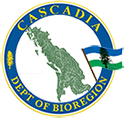The Salish or Séliš language, also known as Kalispel–Pend d’oreille, Kalispel–Spokane–Flathead, or, to distinguish it from the Salish language family to which it gave its name, Montana Salish, is a Salishan language with dialects spoken (as of 2005) by about 64 elders of the Flathead Nation in north central Montana and of the Kalispel (Qalispé) in northeastern Washington, and by another 50 elders (as of 2000) of the Spokane (Npoqínišcn) of Washington.
As with many other languages of northern North America, Salish is polysynthetic; like other languages of the Mosan language area, there is no clear distinction between nouns and verbs. Salish is famous for native translations that treat all lexical Salish words as verbs or clauses in English—for instance, translating a two-word Salish clause that would appear to mean “I-killed a-deer” into English as I killed it. It was a deer.
As of 2012, Salish is “critically endangered” in Montana and Idaho according to UNESCO, with all native speakers being elderly. However efforts are being made to revive it: it is taught and used as a language of instruction at a number of regional schools, like the Nkwusm Salish Immersion School, in Arlee, Montana.
Public schools in Kalispell, Montana offer language classes, a language nest, and intensive training for adults. An online Salish Language Tutor and online Kalispel Salish curriculum are available. A dictionary, “Seliš nyoʔnuntn: Medicine for the Salish Language,” was expanded from 186 to 816 pages in 2009; children’s books and language CDs are also available.
The Salish Kootenai College, offers Salish language courses, and trains Salish language teachers at its Native American Language Teacher Training Institute as a part of its ongoing efforts to preserve the language, and the college even broadcasts programs in Salish on the Salish Kootenai College TV station. As of May 2013, the organization Yoyoot Skʷkʷimlt (“Strong Young People”) is teaching language classes in high schools.
Salish-language Christmas carols are popular for children’s holiday programs, which have been broadcast over the Salish Kootenai College television station, and Salish-language karaoke has become popular at the annual Celebrating Salish Conference, held in Spokane, Washington. As of 2013, many signs on U.S. Route 93 in the Flathead Indian Reservation include the historic Salish and Kutenai names for towns, rivers, and streams. The Missoula City Council is seeking input from the Salish-Pend d’Oreille Culture Committee regarding appropriate Salish-language signage for the City of Missoula.



Post a comment